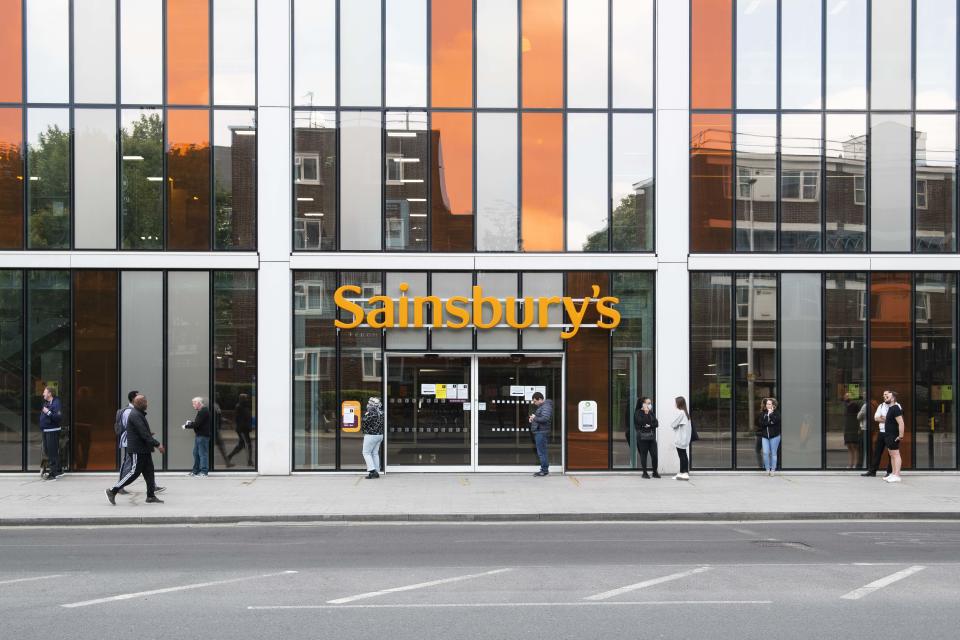Government is using daily coronavirus death toll as a 'propaganda tool', claims expert

Downing Street’s publication of the daily COVID-19 death toll and testing counts is a “propaganda tool” because the data “is unreliable when reported daily”, an expert has claimed.
Professor Allyson Pollock, the director of Newcastle University’s centre for excellence in regulatory science, said coronavirus has “shone a spotlight on the widening inequalities” in Britain and called for the government to revisit its public sector policies.
Her comments came during the first session of a shadow version of the government’s Scientific Advisory Group for Emergencies (Sage), which was formed amid calls for greater transparency and concerns about political interference in advice to the government.
Sir David King, a former government chief scientific adviser who has been vocal in his criticism of No. 10’s handling of the coronavirus outbreak, has assembled the Independent Sage of experts to look at how the UK could work its way out of the coronavirus lockdown.
Few could have articulated the UK government's disastrous handling of the covid-19 crisis as expertly as Professor Allyson Pollock at the Independent Sage meeting today. This 2:20 clip doesn't do it justice tbh, so here's the full six minutes - https://t.co/BhDg2tF49d pic.twitter.com/WQEXHIpMJA
— Brexitshambles (@brexit_sham) May 4, 2020
Pollock criticised austerity cuts to public services and local authorities and said that the lockdown was showing the growing and widening inequalities.
She said: “Forty per cent of our children living below the poverty line. Children are particularly affected by the lockdown.
“We know that the lockdown has had collateral damage on older people, vulnerable groups, children with learning difficulties and people with disabilities and we only see the tip of the iceberg in the excess deaths.
Read more: Police warn against clapping for NHS on Westminster Bridge
“I do see it as a great pity that the government used the daily death toll and the death counts and testing counts as a propaganda tool because these data are unreliable when reported, they're inaccurate and they're underreporting the excess deaths.”
Pollock recommended that the Office for National Statistics (ONS) publish the statistics either once a week or once a fortnight, to combat the “incoherent” data sent out to the public.
“It's really important that the public understand that where the official statistics are gathered and how they can be misused by the government,” she said.

“The second point I want to relate to is what’s the collateral damage of COVID-19 on the NHS.
“We know we were told we were to protect the NHS but all of my life I was told that the NHS is there to protect me so this is an extraordinary position to put me into that I've got to protect the NHS and I've got to stay at home to save lives.
Read more: Former chief scientific adviser says government's lockdown 'delay' has cost lives
“The reason why we're in this position is because for 30 years we've had the decimation of public services and especially the NHS, with marketisation, privatisation, foundation trusts that now generate up to half their income to the private patients and a home diversion through the Private Finance Initiative.”
Pollock said the government needs to revisit its public sector policies with particular focus on mental health services, community health services and above all, the 400,000 people who are in nursing homes who “have been completely left outside of the system”.
The shadow Sage body will focus on seven key points, including how testing and tracing can work, and the future of social distancing.
Its inception came around after claims that controversial government adviser Dominic Cummings was an “active participant” in Sage meetings, The Guardian revealed.
Read more: Google executive attended meeting of key scientific group advising Government
Critics said that Cummings’ presence at the these meetings of the scientific group would affect its impartiality, but also lead to its scientific advice being politicised.
Downing Street has dismissed the claims.


